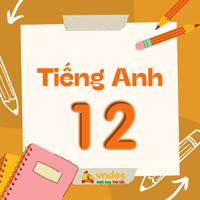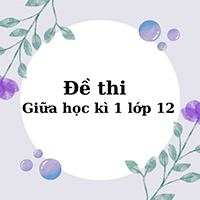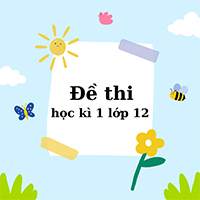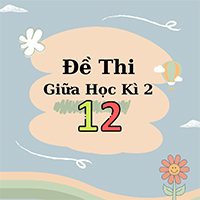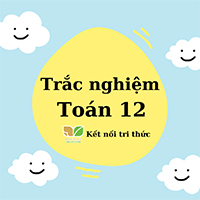Tiếng Anh 12 Friends Global Unit 4 4F Reading
Tiếng Anh 12 Unit 4 4F. Reading trang 54, 55 - Friends Global
Soạn tiếng Anh 12 Friends Global unit 4 4F Reading bao gồm đáp án các phần bài tập kỹ năng đọc hiểu theo chủ đề unit 4 Holiday and Tourism trang 54, 55 hiệu quả.
1. SPEAKING Look at the photos. Which do you think is the best method of travelling? Nhìn vào những bức ảnh. Bạn nghĩ phương pháp nào tốt nhất để đi du lịch?
Đáp án
Planes are one of the fastest and the safest modes of transportation, allowing travelers to cover long distances in a relatively short amount of time. Planes are also equipped with amenities and facilities to ensure passenger comfort during the flight.
2. Read the texts quickly. Match titles (1-4) with texts (A-C). There is one extra title. Đọc nhanh các văn bản. Nối tiêu đề (1-4) với văn bản (A-C). Có một tiêu đề bị thừa.
Travelling online
If you haven't got time to go travelling, you can still enjoy it by following a traveller's experiences on their blog.
Here are three of the most interesting and unusual globetrotters online!
Α
At the age of seventeen, Alex Chacón set off from his home in El Paso, Texas and went for a motorbike ride. Alex's thirty-day tour of the USA took in California, Washington and Florida and gave Alex an aim in life: to travel the world on his motorbike.
Although Alex usually travels alone, he has shared his experiences on his blog. While travelling, Alex videos himself doing all sorts of activities against breathtaking backgrounds of remote jungles, deserts and mountains. On one trip, he filmed himself by moving in a 360° circle so that all the famous landmarks would be included.
During Alex's motorcycle expeditions, he regularly stops to take part in volunteering projects at orphanages that he comes across on his route. Furthermore, he uses his blog to raise donations for orphans.
Alex is now planning to cross Africa, Europe and Asia. It seems that by the 5 time he's thirty, Alex will have ridden his bike across most of the planet!
B
Dutch actress Manon Ossevoort has dreamed of travelling from Europe across Africa to the South Pole for years, and she chose a slow form of transport: a tractor. Manon only averaged 5 km/h as she drove, but that allowed her to get to know the hospitable people in villages where she stopped over for the night. She would explain why she was going to the South Pole and ask people to follow her blog and write down their own dreams. She promised to build a snowman when she arrived at her destination and leave all their dreams inside it. The idea was popular and Manon received thousands of dreams on pieces of paper and in emails. Finally, on 9 December 2014, Manon's dream came true, and she pulled up in a big red tractor at the South Pole. She then built a snowman and left a time capsule inside it with all the dreams she had collected. Manon explained on her blog that when the time capsule is opened in eighty years' time, future generations will be able to read something about our lives and our hopes for the future.
C
Have you ever travelled with no luggage? That was the question Rolf Potts aimed to answer on the 'no-baggage challenge'. However, the task wasn't simply a question of going off for a week to soak up the sun on a beach. Rolf had to travel 50,000 km by plane and get around eleven countries in 42 days with just the things he could carry in his pockets. Would he be able to do it?
Rolf was certainly well qualified enough to try. He was an experienced traveller who wrote a blog about budget travel. Now he planned to update it with regular reports about travelling extremely light.
His first 'no-baggage challenge' entry listed the items he took with him: a toothbrush and toothpaste, a small bottle of soap, a mobile phone and charger, deodorant, sunglasses, a passport, cash and a credit card. His second entry explained that he had got into the habit of washing his clothes before going to bed during his trips. By the third entry, he was really enjoying luggage-free travel.
Potts said that he would never pack any 'just in case' items again, because the imagined situations that they were packed for would never happen.
1 The art of travelling light
2 Non-stop traveller
3 On the road to nowhere
4 Follow your dreams
Đáp án
1. C
2. A
4. B
3. Look at the texts again. What was the purpose of each trip? Nhìn vào các văn bản một lần nữa. Mục đích của mỗi chuyến đi là gì?
Đáp án
Text A: His journey aimed to explore different cultures, landscapes, and to raise awareness for charitable causes.
Text B: Her journey was driven by the goal of inspiring others to follow their dreams and leaving a legacy for future generations.
Text C: The trip served as an exploration of minimalist travel and updating his blog with reports about the experience.
4. Read the Reading Strategy and look at the first question in exercise 5. Then follow the steps below. Đọc Chiến lược đọc và xem câu hỏi đầu tiên trong bài tập 5. Sau đó làm theo các bước bên dưới.
Đáp án
1
Text A: Although Alex usually travels alone, he has shared his experiences on his blog.
Text B: She would explain why she was going to the South Pole and ask people to follow her blog and write down their own dreams.
Text C: He was an experienced traveller who wrote a blog about budget travel.
2. Based on the information provided, it was Manon Ossevoort (Text B) who used her blog to ask people to follow her journey and write down their dreams. She encouraged people to share their own dreams and collected them for a time capsule, fulfilling the purpose described in question 1.
5. Match texts (A-C) with questions (1-5). Each text may be matched with more than one question. Nối văn bản (A-C) với câu hỏi (1-5). Mỗi văn bản có thể được kết hợp với nhiều câu hỏi.
Đáp án
1. A & B
2. C
3. B
4. A
5. A & B
6. Read the texts again. Answer the questions in your own words if possible. Đọc lại các văn bản. Trả lời các câu hỏi bằng lời của bạn nếu có thể.
1 In what three ways does Alex Chacón use his blog?
2 If Alex's plans succeed, how many years will he have been travelling?
3 What were the advantages of travelling by tractor for Manon Ossevoort?
4 How will future generations learn about our hopes for the future thanks to Manon?
5 Why did Rolf Potts seem to be the right person to try the no-baggage challenge?
6 What never, ever happens according to Rolf?
Đáp án
1. Alex Chacón uses his blog to share his travel experiences, raise donations for orphans, and promote volunteering projects at orphanages.
2. If Alex's plans succeed, he will have been traveling for around thirteen years by the time he turns thirty.
3. It included the slow pace, which allowed her to interact with people in villages along the way and collect dreams for a time capsule. Additionally, it provided her with an opportunity to inspire others to follow their dreams and leave a legacy at the South Pole.
4. because she built a snowman at the South Pole and left a time capsule inside it containing thousands of dreams collected from people she met during her journey. When the time capsule is opened in eighty years, it will provide insights into the dreams and aspirations of people from our time.
5. Because he was an experienced traveler who regularly updated his blog with reports about budget travel. Additionally, he had the necessary skills and mindset to undertake such an unconventional journey.
6. the imagined situations for which people pack "just in case" items never, ever happen. This implies that travelers often carry unnecessary items based on hypothetical scenarios that rarely materialize.
7. VOCABULARY Match the highlighted phrasal verbs in the text with the definitions. Write the base forms. Nối các cụm động từ được đánh dấu trong văn bản với các định nghĩa. Viết các dạng nguyên mẫu.
Phrasal verbs
1 to stop a vehicle ____________
2 to leave a place to do something. ____________
3 to move from place to place ____________
4 to begin a journey. ____________
5 to find something by chance. ____________
6 to include ____________
7 to stay somewhere for a short time during a journey ____________
Đáp án
1. pull up
2. go off
3. get around
4. set off
5. come across
6. take in
7. stop over
8. Work in pairs. Decide who is for and who is against this statement: 'More tourism would be bad for the planet.' Prepare arguments in favour of and against the statement. Use the ideas below to help you. Làm việc theo cặp. Hãy quyết định xem ai ủng hộ và ai phản đối tuyên bố này: 'Du lịch nhiều hơn sẽ có hại cho hành tinh này.' Chuẩn bị các lập luận ủng hộ và phản đối tuyên bố. Sử dụng những ý tưởng dưới đây để giúp bạn.
Đáp án
More tourism would be bad for the planet
For:
- Tourism increases pollution and traffic. More tourists mean more cars, buses, and especially planes – which cause a lot of air pollution.
- Building more hotels and resorts often damages the environment. Natural areas are destroyed to make space for tourist facilities.
Against
- Tourism brings money to poorer countries and creates many jobs, especially in remote areas where there are few other opportunities.
- It also helps local people keep their traditions alive, because tourists are often interested in learning about different cultures.
9. SPEAKING Work in pairs. Discuss the statement in exercise 8. Use the phrases below to show that you agree or disagree. Làm việc theo cặp. Thảo luận phát biểu trong bài tập 8. Sử dụng các cụm từ dưới đây để thể hiện rằng bạn đồng ý hoặc không đồng ý.
Đáp án
A: I think more tourism would be bad for the planet. It creates a lot of pollution, especially from air travel. And building new hotels often damages the natural environment.
B: I see your point, but tourism also helps many poor countries. It creates jobs and brings in money that local people really need.
A: That may be true to some extent. However, the increase in traffic and waste in popular tourist areas really harms the environment.
B: I’m afraid I disagree. I think if tourism is managed well, it can actually help protect wildlife and nature. Eco-tourism is a good example.
A: I don’t really agree that eco-tourism always works. Some places become too crowded, and that affects both animals and local people.
B: That’s exactly how I feel — if it’s not managed properly. But I still believe tourism has many more benefits than disadvantages.
A: I couldn’t agree more that good management is important. In fact, maybe the problem isn’t tourism itself, but how it’s done.
Trên đây là Soạn tiếng Anh 12 Friends Global 4F Reading Unit 4 đầy đủ nhất.




